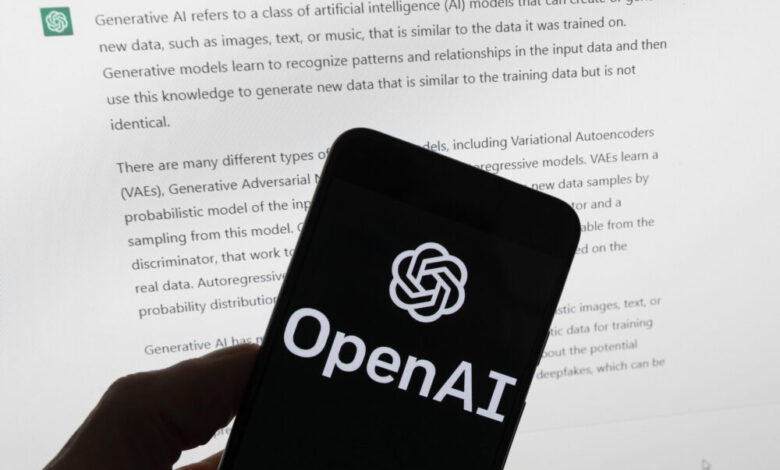Texas-based organization raises concerns about policy and regulation of Artificial Intelligence in schools – Houston Public Media

AP Photo/Michael Dwyer, File
A Texas-based non-partisan think tank is raising concerns about artificial intelligence regulation in schools.
Texas 2036 is an organization that looks toward the future and asks whether the state is prepared for it. Rahul Sreenivasan is a policy advisor for the organization and said as people become more familiar with new technology, they are less likely to consider it AI.
“Something that just takes your results and tells you what you might need to work on, that is AI,” Sreenivasan said. “I don’t think people think that anymore.”
He added that AI is progressively becoming more normalized.
“This is one of those things that you have to approach both with caution, but not to overreact. I think there’s a lot of nightmare scenarios that are associated with it,” he said. “You have to just go in with clear eyes.”
According to Internet Matters, an England-based non-profit, 25% of children are using AI tools to complete or help with their homework.
“A lot of higher education and K-12 are looking at how to deal with using Chat GPT and similar tools to cheat,” Sreenivasan said. “There is also potential in terms of how these tools could be used for individualized tutoring for every student.”
The University of Pennsylvania has at least one professor who has adopted an open Chat GPT policy for exams to avoid concerns about cheating. In the case of tutoring, organizations like Khan Academy have been working toward using AI to provide personalized teaching to students.
Sreenivasan added exams like the STAAR test and MAP assessments also partly use AI to grade students. Late last year, the TEA released a new STAAR test scoring process that includes computer grading. About 25% of written responses will be graded by a human.
“Some learning software that knows where you’re at progress-wise and certain things, some might guide you toward the next lesson,” he said. “… The MAP test, the STAAR test use a more rudimentary version of AI.”
Last year, Governor Greg Abbott signed a bill to establish an AI advisory council. House Bill 2060 established a council that will oversee how state agencies are developing and using AI in an effort to make sure it is done so responsibly.
The full handout from Texas 2036 focuses on a variety of topics involving AI, from the workforce to how the power grid can be affected. The handout can be downloaded online.



